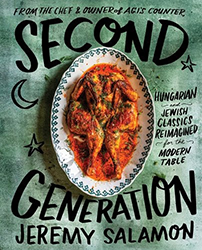Early in this compendious, carefully crafted book about her “well-heeled” predecessors, celebrated Russian poet Maria Stepanova admits she is writing “not about my family at all, but something quite different: the way memory works and what memory wants from me.” “Picking through approaches to the past” — including those of Osip Mandelstam, W. G. Sebald, Rafael Goldchain, and Charlotte Salomon — she seeks one “that might work.”
What works for Stepanova is highly individual yet birthed from the “collective catastrophe of the last century.” Because “the past is the key to everything that occurs daily in the present,” In Memory of Memory—shortlisted for the 2021 Booker Prize — serves as a model for us all as we reckon with both personal and collective history.
Stepanova, who grew up in a Moscow apartment crammed with objects, words, and images — “a museum” of early twentieth-century “cultured life” — always knew she would write about her “invisible,” ordinary family, feeling duty-bound to speak on their behalf. She begins at age ten, resumes at sixteen, and concludes the project when she is forty-five. To reconstruct her ancestors’ story, she transcribes letters, studies photographs, consults archives and histories, and travels to remote villages and cemeteries. In the end, she confesses her “obsession” was “all about her and not about them.”
“Silences and rents in the fabric” are key. Although Stepanova imagines her family history to be “well-documented” — how many of us possess so many old letters or inherit so many mementos? — she discovers “the black hole of the unspoken” at the center. Emblematic to the story is Leonid (“Lyodik”) Gimmelfarb, her maternal grandfather’s cousin, conscripted at nineteen to fight Hitler. Stationed in Leningrad during the terrible 1941 winter siege, Lyodik wrote letter after letter to his mother, assuring her he is fine, asking after the family, not once mentioning the horrors he witnessed and endured. Lyodik was killed in action on August 27, 1942.
Perhaps the gravest silence concerns Jewishness. Although at seven, Stepanova is pointedly told, “We are Jews,” nowhere in the family’s voluminous correspondence does she find any reference to Jewishness, or any use of Yiddish. Yet these people were marked as Jews, beginning with the pogroms early in the century in southern Ukraine, continuing after the revolution, and peaking during the Jewish Doctors’ Plot in 1953, when Stepanova visualizes her great-grandmother and grandmother, both doctors, “waiting to be taken away.”
Still, Stepanova concludes she “didn’t need to hear” any of this from them, for “the knowledge had lived within [her].” Like her mother, Stepanova fears the “violence that can destroy a person,” her fear “polished to a gleam by the many preceding generations”:
When I awake I realize that the Germans have entered Paris and I need to hide the children; that the fearsome woman who sweeps the snow in the yard will interrogate me about my right to live there; that Mandelstam has been arrested and is entering a stadium through iron doors that resemble the doors to an oven…
Her family’s silence speaks volumes more than all their words and images. It is as if the words and images were produced and preserved precisely to conceal the horrors Stepanova “remember[s] too well,” with her “gut memory.”
As we read and re-read In Memory of Memory, tellingly subtitled A Romance, we glean tantalizing tidbits about Stepanova’s ancestors — a great-grandmother who studied medicine in Paris; a grandfather who served in the Red Army; a distant relative who was a gifted opera singer — but, most importantly, we join Stepanova in her discovery of the blurred line between herself and these “endlessly vulnerable, desperately interesting, utterly defenseless” people. Brilliantly translated by Sasha Dugdale, herself a poet, this beautifully written, thought-provoking, genre-defying volume belongs on the shelves of anyone who has ever wondered about their ancestors, ever dealt with the trauma of “postmemory,” ever sought the truth of their own life.
Joyce Zonana is an award-winning writer and literary translator, born in Cairo, Egypt, and living in New York. Her memoir, Dream Homes: From Cairo to Katrina, An Exile’s Journey, recounts her own experience growing up as an immigrant in New York City. A Land Like You is her third translation.





